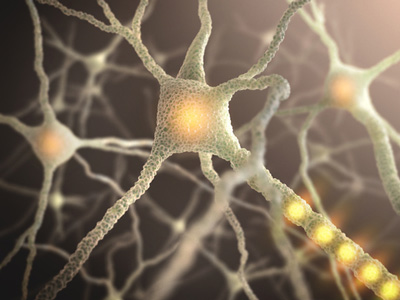HIFalpha gene could hold key to treating Parkinson’s disease
Posted: 20 October 2015 | Victoria White
Researchers found that when HIFalpha was ‘switched off’, nerve function in flies with Parkinson’s disease was restored…


Researchers have identified a new gene linked to nerve function, which could provide a treatment target for ‘switching off’ the gene in people with neurodegenerative diseases such as Parkinson’s disease.
Current treatments for Parkinson’s only treat symptoms of the disease rather than its underlying causes, so these new findings in fruit flies could lead to novel preventative treatments if replicated in humans.
Previous research suggests that defects in mitochondria, which are tiny ‘batteries’ in cells that provide energy, play an important role in a number of diseases that affect the nervous system, including Parkinson’s. However, until now the neuronal processes underlying the development of these conditions were unknown.
The study, conducted by researchers at King’s College London, discovered that damaged mitochondria in fruit flies produce a signal which stops nerve cells from working. A gene called HIFalpha was found to regulate the nerve signals from damaged mitochondria and, when this gene was ‘switched off’ by the research team, nerve function in flies with Parkinson’s disease was restored. By deactivating the HIFalpha gene, the early failure of nerve cells caused by mitochondrial damage was prevented.
As the HIFalpha gene is also found in humans, this new finding could pave the way for new treatments in the future.
HIFalpha discovery offers promising avenue for the development of new treatments
Dr Joseph Bateman from the Institute of Psychiatry, Psychology & Neuroscience (IoPPN) at King’s College London, said, “Like their human counterparts flies with Parkinson’s disease progressively lose motor function, which includes a negative impact on their ability to climb. Remarkably, we found that switching off a particular gene dramatically improved their motor function and climbing ability.
“The biggest surprise from our work is that damaged mitochondria produce a signal that actively prevents nerve cells from working properly. Thanks to this study we now have a much better understanding of how nerve cells function, which could transform the way in which neurological diseases such as Parkinson’s are understood and treated.”
Claire Bale, Head of Research Communications at Parkinson’s UK, said, “Understanding how subtle changes in our genes may trigger brain cell death is one of the most promising avenues for the development of new treatments for Parkinson’s.
“This discovery adds a new piece to the intricate jigsaw puzzle of genetic factors that play a part in Parkinson’s.”
Related conditions
Parkinson's disease
Related organisations
King's College London



